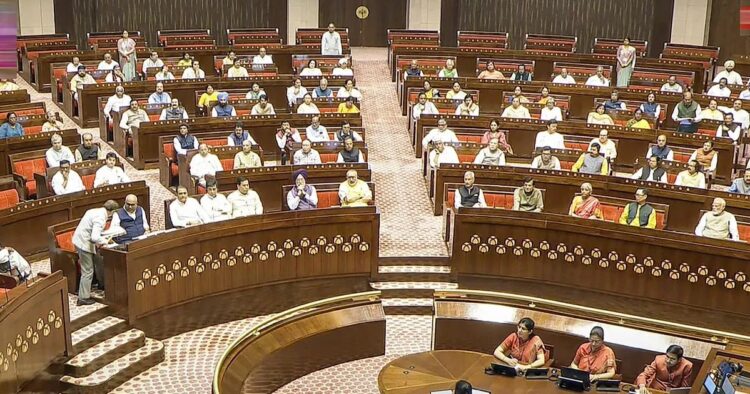- Modi government ends controversial “Waqf by user” clause to stop illegal land claims.
- Government land can no longer be taken over by Waqf Boards.
- High Court appeals, non-Muslim members, and strict audits bring accountability to the Waqf system.
This is not just another amendment – it’s a bold and historic move to stop the silent encroachment of temples, villages, schools, and government land by misusing the Waqf Act. Read this full article to understand how one law passed in 1995, worsened in 2013, was finally corrected in 2025.
A Controversial Law Born in 1995
The Waqf Act was originally passed in 1995 during the Congress-led government. It aimed to manage religious Muslim endowments called “Waqf” properties. But the law was loosely drafted and full of gaps. It did not clearly define property rights and allowed Waqf Boards to declare properties as Waqf even without proper legal backing.
Over the years, this law was misused to quietly take over government lands, temples, cremation grounds, schools, and even private properties. According to a report by the Sachar Committee (2006), India had over 4.9 lakh registered Waqf properties spread over 6 lakh acres, making Waqf the third-largest landowner in India after the Indian Railways and Defence.
UPA’s 2013 Amendment: More Power, Less Accountability
In 2013, instead of fixing the flaws, the UPA government under Congress made the situation worse. It amended the Act to grant more autonomous powers to Waqf Boards, including the authority to decide what is Waqf property. This meant that the Board became the judge, jury, and beneficiary. It led to large-scale property disputes across states, especially in West Bengal, Uttar Pradesh, Tamil Nadu, and Karnataka.
In many cases, entire villages were marked as Waqf just because someone had prayed there once – a practice known as “Waqf by user”. There was no need for documentation, proof of ownership, or government approval.
2024 Waqf Amendment: A Game-Changer by Modi Government
The BJP-led NDA government under PM Narendra Modi has now brought Waqf (Amendment) Bill, 2024, which is a comprehensive overhaul of this outdated and misused law. The amendment fixes major loopholes and brings transparency, accountability, and fairness.
Let’s break down the major improvements:
1. End of “Waqf by User” – No More Land Grabbing Without Proof
Earlier, Waqf properties could be declared simply if someone was “using” them for religious purposes. This caused many illegal encroachments.
The 2024 Bill removes this clause. Now, a Waqf property can only be declared through a formal declaration or an endowment deed, and the donor must be a practising Muslim for at least 5 years. This puts a stop to vague and baseless claims.
2. No More Conversion of Government Land into Waqf
Under the 1995 and 2013 versions, the Waqf Board could claim government land due to the law’s silence on it.
Now, the 2024 amendment clearly prohibits any government land from being declared as Waqf. If a dispute arises, the District Collector will investigate and decide based on land records. This is a major win for public and national property protection.
3. Waqf Board Loses Unchecked Power to Decide What is Waqf
Earlier, the Board could unilaterally decide which land was Waqf. In many cases, people would discover their land had been declared Waqf without their knowledge.
Now, this power is taken away. No board can declare land as Waqf without legal process and verification. This brings in neutral oversight and removes the potential for biased decisions.
4. Surveys Based on Land Records, Not Waqf Fantasies
In earlier systems, surveys were conducted without referring to state land records. That led to false reports and exaggerated claims.
Now, District Collectors will conduct Waqf property surveys based on revenue records as per the law. It reduces fraud and increases legitimacy.
5. Inclusion of Non-Muslims and Women in Waqf Boards
The 1995 law limited board membership to Muslims. Now, at least two non-Muslims and two Muslim women must be part of each board – at both state and central levels.
It also ensures representation from backward Muslim communities like Bohra, Agakhani, Sunni, Shia, etc. This promotes diversity and prevents one-sided control.
6. Tribunal Decisions Now Under Judicial Oversight
Earlier, challenging Waqf Tribunal decisions was nearly impossible. Now, any citizen can appeal in High Court within 90 days of a Waqf declaration. This ensures the courts have final say, and people can protect their rights.
The tribunal panel has also been restructured. A District Judge will head it, and there’s no need for a religious law expert anymore – making it more secular and judicially accountable.
7. Central Government Takes Control of Audits and Rules
The old law gave States the responsibility to audit Waqf Boards, which often led to inaction or bias. Now, the Central Government will control registration, audits, and rules, ensuring uniformity and strict monitoring.
8. Separate Boards for Bohra and Agakhani Communities
Earlier, only Shia and Sunni boards were permitted if Shia Waqf crossed 15%. Now, the law has been extended to include Bohra and Agakhani sects. This acknowledges the diverse religious identities within the Muslim community.
The Waqf (Amendment) Bill, 2024, is not a minor reform – it’s a bold correction of historic wrongs. It closes legal loopholes that were intentionally or carelessly left open by Congress in 1995 and 2013.
By removing unverified land claims, protecting government property, introducing judicial checks, and ensuring board diversity, the BJP-led NDA government has safeguarded public land and brought transparency in managing religious properties.
This law will prevent the quiet, systematic takeover of land in the name of religion – a practice that was silently flourishing for decades under previous governments.

















Comments